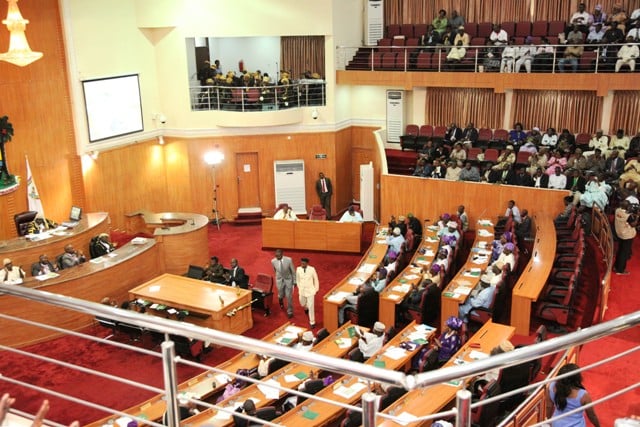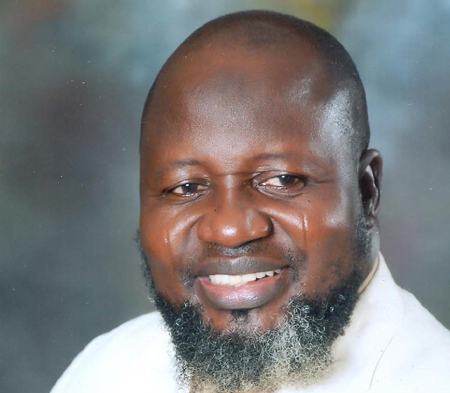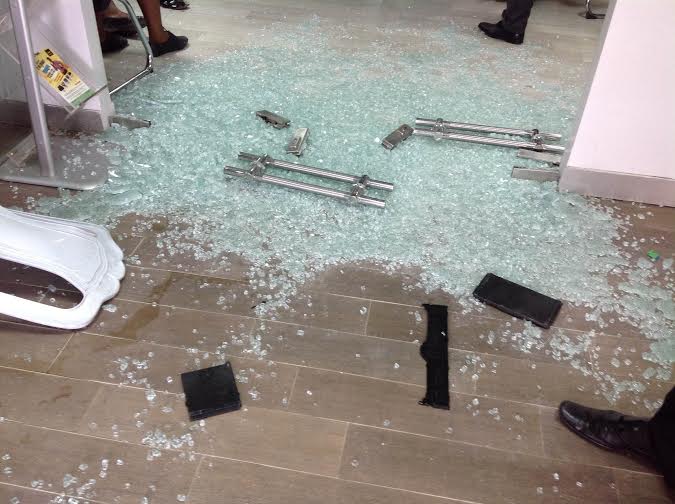The Law and Good Governance Group (LGGG), a Lagos-based advocacy body, has urged lawmakers to be wary of spurious petitions against certain nominated persons who are being screened for federal and state cabinet positions.
The group said the lawmakers must be vigilant and be seen to be guided by the constitution so as not to allow the hallowed chambers to be used to frustrate President Muhammadu Buhari and other state governors in their choice of cabinet members.
Festus Odunlami, executive director of the group, said both federal and state houses of assembly should bear in mind the provisions of the law that ought to guide them “in determining the effect of a private petition on the eligibility of a nominee” for either the office of a minister or a commissioner/special adviser.
According to the statement, Section 192 of the 1999 Constitution of Nigeria prescribes the requirement of a commissioner in a State: “No person shall be appointed a commissioner of the government of a state unless he is qualified for election as a member of the house of assembly of a state.”
Advertisement
It explained further that the relevant provisions dealing with qualification of a house of assembly member can be found in sections 106-107 of the 1999 constitution, while Section 107 (1) and (2) specifically deal with disqualification for election as a member of the house of assembly if:
- he is under a sentence of death imposed on him by a competent court of Law or tribunal in Nigeria or a sentence of imprisonment or fine for an offence involving dishonesty by fraud (by whatever name called) or any other offences imposed on him by such court or tribunal substituted by a competent authority for any other sentence imposed on him by such a court or tribunal;
- “within a period of less than 10 years before the date of an election to the House of Assembly, he has been convicted and sentenced for an offence involving dishonesty or he has been found guilty of a contravention of the Code of Conduct, or
- “he has been indicted for embezzlement of fraud by a judicial commission of inquiry or Administrative Panel of Inquiry or an or a tribunal set up under the tribunal of Inquirt Act, a tribunal of Inquiry law or any other law by the Federal and State Government which indictment has been accepted by the Federal or State Government, respectively.”
The group added that Section 107(2), which deals with appeals, provides that “any appeal against the decision is pending in any court of law in accordance with any law in force in Nigeria, subsection (1) of this section shall not apply during a period beginning from the date when such appeal is lodged and ending on the date when the appeal is finally determined or, as the case may be, the appeal lapses or is abandoned whichever is earlier.
The LGGG statement explained that although the 1999 constitution envisaged a situation where a nominee could be disqualified from consideration as a commissioner, it is evident that the constitution “is very clear in stating that a person can only be disqualified if he has been indicted or convicted by any of the following: a court, a tribunal, a judicial commission of inquiry, an administrative panel of inquiry set up by Law or the Code of Conduct Tribunal”.
Advertisement
The statement added that it was also pertinent to note that the 1999 Constitution also states in 107(2)(d) that once an Appeal is lodged against any of the convictions or indictment, such indictment or conviction will not act as a disqualification to the eligibility of a Commissioner until the appeal is finally determined or lapses or is abandoned, whichever is earlier.
“We wish to state, therefore, that the framers of these constitutional provisions placed these strict conditions to prevent third parties from placing non-judicial decisions of questionable validity as hurdles to the election of a House of Assembly member and/or clearance of a Commissioner.
“If a House of Assembly then acts on petitions grounded on non-judicial decisions, it will be contravening the provisions of the 1999 Constitution and will be “setting a dangerous precedence by admitting and acting on internal non-judicial decisions of unverified quality…moreso that the House of Assembly and honourable House members are creations of the 1999 Constitution. They should not be seen to be departing from the same constitution that creates them.”
Advertisement
Add a comment







